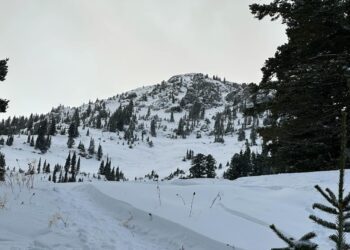By Keila Szpaller DAILY MONTANAN
Helping Montanans have a better shot at camping in state parks is a popular idea.
House Bill 440, which would limit the number of reserved campsites at 80% in order to allow more walkups, passed unanimously in committee, and then it passed unanimously in the House.
Rep. Steve Gunderson, R-Libby, had said the bill was aimed at creating more availability for Montanans, who sometimes want to go camping spontaneously in the summer. That’s hard to do because reservations fill up fast and well in advance.
If the bill continues to sail toward the governor’s desk and gets a signature, it would affect 12 of the 25 state parks that currently allow camping, according to Montana Fish, Wildlife and Parks.
Since the Covid-19 pandemic, more people have been venturing outdoors.
A 2022 Montana State Parks visitation report described “explosive” growth in 2020, and it counted 3.4 million visitors to parks in 2021, just shy of the record in 2020 — but still 27.7% over 2019.
As popular destinations in the state, such as Glacier National Park, draw more tourists and fill up, visitors who get turned away are putting pressure on other recreational areas, Gunderson explained during a hearing.
The idea with the bill is the remaining 20% of campsites that can’t be reserved ahead of time will be open to walkups.
That way, locals who might not want to plan a weekend trip in their near-backyard months ahead of time have a better shot at a last-minute getaway — although the bill does not ban nonresidents from walkups either.
At least one neighboring state has a different way of giving its residents a leg up, although Montana might not be able to follow suit.
Gary Schoene with Wyoming State Parks and Cultural Resources, said most sites require reservations in his state, and Wyoming residents can reserve a site up to 120 days in advance. However, he said nonresidents have to wait one more week, 113 days before their trip.
The change started about three years ago, partly in response to Covid-19 and the huge increase in demand for campsites, including when Colorado closed down and its residents turned to Wyoming to go camping, Schoene said.
“We still get a ton of Colorado people up at our southern parks, but we’re getting a lot of Wyoming people now too,” Schoene said.
Some sites still are available on a first come, first served basis, however. Schoene said some people like “hunting” a campsite, and then some campers also don’t know if they’ll have a weekend off until the day before, so the system accommodates them, too.
At the Idaho Department of Parks and Recreation, Craig Quintana said campsite reservations were “a hot topic” at the legislature roughly two years ago. Basically, legislators wanted to figure out how to give Idahoans priority.
He said Idaho mulled giving residents the same priority Wyoming does, but federal law stopped the state in its tracks.
That’s because the majority of state parks have been developed in whole or in part with money from the Land and Water Conservation Fund, which does not allow residents to get ahead in line, Quintana said.
Instead, Idaho settled on essentially doubling the cost of camping for nonresidents, Quintana said. Regardless, the parks are busy.
“During the peak season at popular parks, we are booked fairly solid,” Quintana said.
However, he also said a savvy person can work the reservation system so it sends an alert when there’s a cancellation and a site opens up.
“So they should never lose heart,” Quintana said.
In Montana, Fish, Wildlife and Parks’ Greg Lemon said the Treasure State is also restricted by the Land and Water Conservation Fund, which would prohibit the state from discriminating against nonresidents.
Montana has used Land and Water Conservation Fund grants for a variety of projects, such as swimming pools, skateparks, trailheads and playground renovations. In 2021, FWP used $1.34 million from that fund for the Somers Beach acquisition on Flathead Lake for a new state park, according to a project list from the agency.
Montana campsites cost $4 to $34 depending on the season and amenities, but cabins, yurts and tipis cost more for nonresidents who don’t buy a park pass, according to FWP. Those passes cost $35 for seven days.
In Montana, residents can get a break, too. Those who pay the $9 state parks fee with their annual vehicle registration don’t need to buy passes.
The bill also notes that campers who have multi-day reservations but don’t arrive by 10 a.m. on the second day of their reservation will have their booking canceled and the site open to others on a first come, first served basis.











